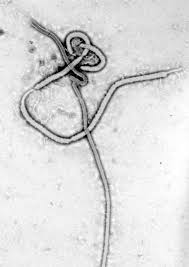 Ebola is the latest crisis being discussed in the news lately, and for good reason. Unless you’ve been living under a rock lately, you probably know that the first case of ebola in the US was reported just last month. Since then, two more individuals have contracted ebola in the US, both nurses who cared for the first victim.
Ebola is the latest crisis being discussed in the news lately, and for good reason. Unless you’ve been living under a rock lately, you probably know that the first case of ebola in the US was reported just last month. Since then, two more individuals have contracted ebola in the US, both nurses who cared for the first victim.
The ebola virus is a deadly virus that has never been reported on US soil, so this is an unprecedented event. And a rather frightening one.
The news of a second person contracting ebola in the US has been something of a game changer, I think, during this crisis. People are starting to worry, and some are even preparing for a global epidemic. People are afraid to travel and the price of airline stock is dropping. Parents are afraid to send their children to school, and schools are actually closing in some parts of the country.
But, is ebola in the US as disastrous and horrifying as the TV news is making it out to be? It could be, but for reasons I’ll get into shortly, I highly doubt it. However, I don’t think it ever hurts to be prepared for any type of disaster.
To best be prepared for any type of health crisis, you first need to know what you’re dealing with. So, here’s a quick rundown on the ebola virus and how it works.
Skip directly to preparing for an ebola outbreak.
Educate Yourself on Ebola
What is ebola?
Ebola is a very rare disease cause by the ebola virus. It was first documented and reported in 1976 near its namesake the Ebola River in the Congo. Since then, there have been sporadic outbreaks throughout Africa.
Is ebola deadly?
In a word, absolutely! Ebola is considered to be a very deadly disease. The ebola mortality rate has been estimated to be anywhere from 50% to 70%. However, this mortality rate is based on cases in third world areas in Africa, where medical facilities and hygiene practices are typically inferior to more advanced nations like the US. Death can occur 6 to 16 days from the start of symptoms.
What are some ebola symptoms?
Ebola symptoms can start up to 21 days after exposure to the virus. One of the first ebola symptoms to show is usually a fever of 101.5°F or higher. As the illness progresses, other symptoms can include:
- Severe headache
- Muscle pain
- Weakness
- Diarrhea
- Vomiting
- Abdominal pain
- Unexplained bleeding, particularly from the eyes, or bruising
Is there a vaccine or cure for ebola?
As of October 2014, there is no official vaccine or cure for ebola. Patients who are suffering from the illness will usually be given fluids and electrolytes to stave off dehydration, and possibly blood transfusions.
On October 13th, 2014, though, the Walter Reed Army Institute of Research in Maryland began testing a new ebola vaccine. This vaccine is being tested on 39 healthy humans, and scientists have high hopes for success.
How is ebola transmitted?
Ebola is not as easily transmitted as many other illnesses like the flu. To catch ebola, a person must come in contact with an infected person’s bodily fluids, such as blood, vomit, feces, and urine.
Individuals most at risk of catching ebola are healthcare workers and anyone else caring for infected individuals like family members. It’s important to note that unlike some other viruses, the ebola virus isn’t contagious until after symptoms appear.
Can ebola mutate to become airborne?
The thought of the ebola virus mutating and becoming airborne is terrifying to say the least. I’ve been following news of this virus since the outbreak in 1995, and this has always been a question that popped into my mind whenever I heard about another major outbreak – including this outbreak.
As you probably already know, it’s not uncommon for bacterium or viruses to mutate. Some mutations may make a virus or bacteria more resilient, for instance. So, yes, it’s entirely possible for ebola to mutate and become an airborne illness. However, the chances of this actually happening are so remote, it’s not much of a concern to scientists at this time. According to Vincent Racaniello, a virologist at the College of Physicians and Surgeons at Columbia University “We have been studying viruses for over 100 years, and we’ve never seen a human virus change the way it is transmitted.”
Prepare for an Outbreak of Ebola in the US
Although the chances of contracting ebola in the US are pretty slim, it never hurts to be prepared! If you have’t already, you might want to start stocking up on a few supplies.
Your needs may vary, depending on your situation and what you’re already stocked up on. Here are a few supplies you may want to grab to prepare for a possible outbreak of ebola in the US.
- Water (1 gallon per person per day recommended for drinking and washing.)
- Non-perishable food (At least 2 weeks worth.)
- Can opener
- Prescription medications (30-90 day supply, if possible.)
- First aid items and over-the-counter medications
- Surgical gloves
- Face masks
- Diapers and other baby supplies
- Toilet paper and toiletries
- Soap
- Hand sanitizer
- Cleaning items (Particularly bleach, which can be used to disinfect surfaces and sanitize water.)
- Candles or lanterns and lighters
- Flashlights and batteries
- Battery operated, solar, or hand crank operated radio
- Cash (In the midst of a serious crisis, it may be difficult to withdraw cash from ATMs due to an overwhelming demand. ATM buttons are also notorious for being covered in bacteria, viruses, and other germs.)
What do you think about a possible outbreak of ebola in the US? Is it a serious threat, or is it blown out of proportion?





